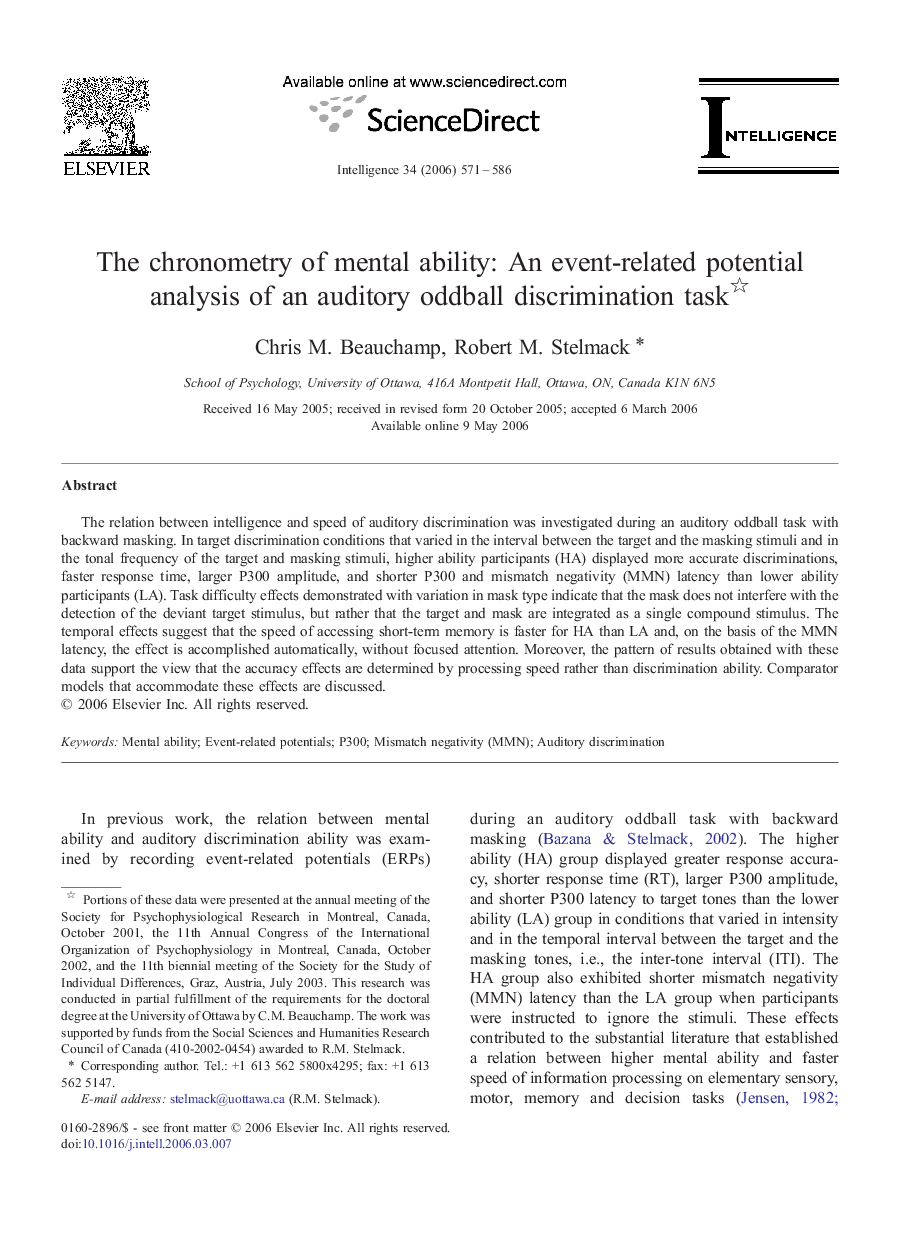| Article ID | Journal | Published Year | Pages | File Type |
|---|---|---|---|---|
| 929468 | Intelligence | 2006 | 16 Pages |
The relation between intelligence and speed of auditory discrimination was investigated during an auditory oddball task with backward masking. In target discrimination conditions that varied in the interval between the target and the masking stimuli and in the tonal frequency of the target and masking stimuli, higher ability participants (HA) displayed more accurate discriminations, faster response time, larger P300 amplitude, and shorter P300 and mismatch negativity (MMN) latency than lower ability participants (LA). Task difficulty effects demonstrated with variation in mask type indicate that the mask does not interfere with the detection of the deviant target stimulus, but rather that the target and mask are integrated as a single compound stimulus. The temporal effects suggest that the speed of accessing short-term memory is faster for HA than LA and, on the basis of the MMN latency, the effect is accomplished automatically, without focused attention. Moreover, the pattern of results obtained with these data support the view that the accuracy effects are determined by processing speed rather than discrimination ability. Comparator models that accommodate these effects are discussed.
